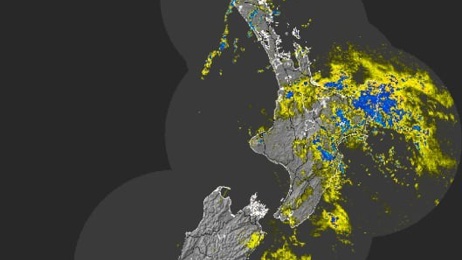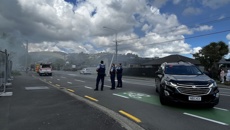
Canterbury children born after the 2011 earthquake have inherited trauma from their parents through their DNA - similar to what can happen to children of war veterans, experts say.
That and the ongoing trauma experienced by children born before the quake is contributing to a spike in young people seeking mental health treatment for a range of conditions and behavioural problems, including anxiety and concerning sexual behaviour.
Nearly 3100 new cases of children and youth under the age of 18 were referred for mental health treatment through the Canterbury District Health Board during 2017, new data shows.
That figure was the highest in more than a decade and had been steadily climbing since 2011 when it was 1510.
Dr Harith Swadi, clinical director of child, adolescent and family specialist mental health services at the DHB, said medical practitioners were still dealing with the effects of trauma more than seven years after the devastating February 22 Christchurch earthquake.
As well as being triggered by direct experience of a major traumatic event, chronic stress could be passed on to the future children of adults who lived through traumatic events by changes to DNA known as epigenetics.
"The earthquake's effects are likely to stay with us for the foreseeable future; possibly for generations, just as those effects experienced post-war," said Swadi.
Several studies in the United States and Australia have shown some children of Vietnam War veterans have inherited PTSD from their parents.
That is because of epigenetics, which is essentially how people's lifestyles and experiences change how their genes are expressed, turning off some genes and turning on others.
Swadi said older children who lived through the 2010, 2011 and 2016 earthquakes that ravaged the Canterbury region were also suffering from ongoing, but manageable earthquake-related fears and trauma caused by environmental and lifestyle changes.
"The earthquakes have changed many aspects of daily life in the form of parents' distress, lack of certainty and EQC and insurance issues. The fabric of society here in Canterbury has changed and it is more stressful for many people.
"Children, as a result, suffer. They have new worries and have fewer supports from the adults around them. They become more insecure and more anxious."
Anxiety often affected children's behaviour and led to emotional difficulties and school and relationship problems.
Stop, a Christchurch-based organisation that helps people struggling with concerning sexual behaviour or who have sexually abused others, has seen a sharp increase in referrals to its programme for primary and intermediate school-aged children.
In 2007, nine children were treated through the programme. Last year 58 kids under 12 sought help from Stop.
Demand for Stop's adolescent and adult services, however, was static.
The organisation's services are available to people in Nelson, Dunedin, Christchurch and Invercargill but most clients are from Canterbury.
Suzanne Alliston, team leader of Stop's children's services, said while exposure to easily accessible online pornography had contributed to the rising number of kids needing treatment, the earthquakes had also had a significant impact.
"Sexualised behaviour in children can be seen as one way of coping with hard feelings. It's not related to sex as much as it's related to an unhealthy expression or way of not coping," said Alliston.
"Kids might be acting out at school - kicking, punching, destroying property - or they might be engaging in sexualised behaviour and often the reason for those things are very similar and anxiety is a part of that."
James Morris, chairman of the Secondary Principals' Council and principal at Darfield High School about 45 minutes west of central Christchurch, said Canterbury school principals had noticed an increased prevalence of anxiety and behavioural issues in children since the quakes.
"The stress or anxiety plays out in different ways in different students. It's not necessarily that a student is cowering in the corner or anything like that. Sometimes that anxiety plays out in the way that they behave or engage with their work."
Kids who were in preschool or just starting school during the 2010 and 2011 earthquakes were now in Year 6 to Year 9 and along with usual challenges that came with transitioning from primary to secondary school they had to deal with earthquake-related post-traumatic stress.
A 2016 university study of young children in Canterbury concluded that children who started school after the earthquakes had significantly more behavioural problems and PTSD symptoms than children born pre-quake had at the same age.
Prime Minister Jacinda Ardern in February announced the Government would roll out a $28 million mental health programme for Canterbury's school children during the next three years.
The funding would be put towards ensuring every child had access to a mental health worker.
Morris said schools in the area were working with the DHB and Ministry of Education to develop strategies to support communities and ensure the education and health sectors and families were using a consistent approach to deal with kids' mental health issues.
New cases of children referred for mental health treatment through Canterbury DHB
2005: 1450
2006: 1338
2007: 1306
2008: 1222
2009: 1427
2010: 1543
2011: 1510
2012: 1770
2013: 2172
2014: 2600
2015: 2767
2016: 3009
2017: 3087
Take your Radio, Podcasts and Music with you









